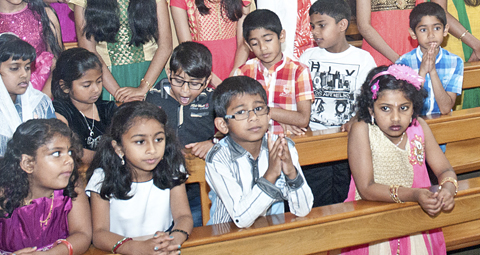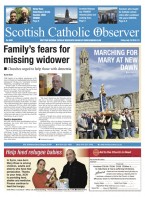July 15 | ![]() 0 COMMENTS
0 COMMENTS ![]() print
print

We must bring love to those next to us in the church pews
This week’s editorial leader
The longer we live the more we fade. We are living longer than our parents, who are living longer than their parents. It’s no secret that looking around our Churches there are more grey hairs than their used to be.
Our bodies may stay together longer, but our minds do not.
There is still plenty of youth and vitality to be found but we are an ageing Church in an ageing country. The statistics are sobering. More than 80,000 Scots have Alzheimer’s, and 1 in 14 of over 65’s do. Looking around your Church this Sunday you will surely see someone affected by this.
Adapting to this means facing and tackling the problems it brings. Many of us have known siblings, parents, wives and husbands who faced dementia at the end of their lives. Who stopped recognising loved ones, whose minds became fuzzier, more confused until they seemed almost like a shadow of themselves.
It’s a hard thing to witness, yet when people are most vulnerable is when they most need our support.
St John Paul II in a beautiful passage from Evangelium Vitae (On the Gospel of Life) speaks of ‘the God of life, who has created every individual as a ‘wonder.’ We are called to foster an outlook that ‘does not give in to discouragement when confronted by those who are sick, suffering, outcast or at death’s door.’ Those suffering from dementia challenge us in a particular way towards the beautiful, and at times heroic, response of love, ‘perceiving in the face of every person a call to encounter, dialogue and solidarity.’
This is the love we must bring not just to our families but those next to us in the pews. It doesn’t have to be a big thing, it can be as little as clear signs at each door, or even just checking in with someone you haven’t spoken to in a while. Even the smallest things can help bring love and dignity to the lives of those who need it.
The Scottish bishops’ uncompromising statement on the renewal of the Trident nuclear weapons system was a welcome intervention this week. In these times of political turmoil the Scottish Church has been resolute in its longstanding opposition to these weapons of mass destruction. As the bishops note, the British government is committed to universal disarmament. That should not be a mere notion, but a goal we all strive for.
Nuclear weapons are a terrible, ungodly blight on the earth yet all too often they are simply accepted as ‘the ways things have to be.’
A world without them is possible. We should not be persuaded by those who say it is too difficult.











